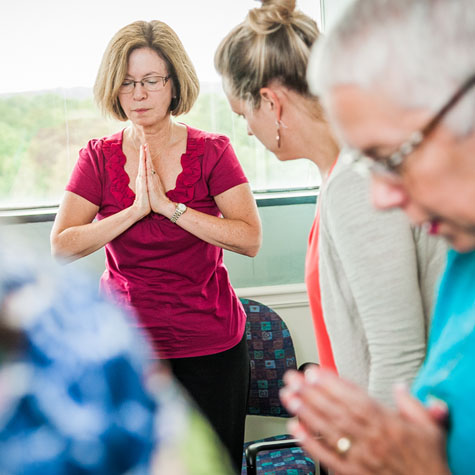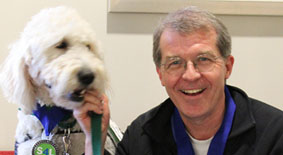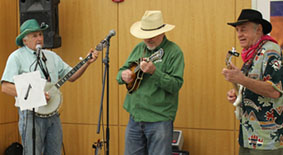Silence and Meditation Build Mindfulness
A rejuvenating break from the daily routine.
Imagine taking a significant amount of time away from work and family to spend a full eight days in total silence. Children’s physician Nina Guzzetta, MD, did just that. She found the experience to be not only rejuvenating but a fascinating look at how taking time away from the daily routine and all its noise can help one achieve a new level of wellness.
The Eight Days of Silence retreat immersed Dr. Guzzetta in an atmosphere where all electronics were turned off. “It was complete silence,” she said. “Not just [turning off] technologies, but no talking and no reading, too.” She said the initial experience was “somewhat daunting, knowing that for the next eight days, I would have no cellphone, no internet, no emails, no texts, no social media.” There was time each day devoted to yoga, meditation and other wellness activities.
Having previously completed a weekend-long silent retreat, Dr. Guzzetta knew a bit of what to expect. She intended to do some inner searching and meditation and knew that complete silence would allow her to avoid distractions. Even talking with fellow participants was not allowed. “I realized that, if we would have been allowed to talk, we would be distracted by each other’s stories—why are you here? Tell me about yourself, and I’ll do the same with you.” The silence proved to be, in her words, profound.
During her days of silence and meditation, she came away with some key observations she believes have aided her own emotional and spiritual wellness and could benefit other Children’s physicians.
“Today’s world is busier and busier, with more and more distractions. To do what we do well requires our full attention, and that’s where a mindfulness practice can help,” Dr. Guzzetta says. “Mindfulness helps cultivate attention and awareness of an experience and of the thoughts and feelings that arise with that experience, without judgment. The mind can literally learn to do this well, but it takes intention and work, just like strengthening a muscle takes work. When we are present in a mindfulness sense, we are more able to see things as they really are, thus deepening our wisdom, understanding and acceptance of what is before us.”
Dr. Guzzetta joined Children’s in the early 1990s, staying on at the Children's Egleston Hospital campus after she completed a fellowship in pediatric cardiac anesthesiology there. She shares her belief in mindfulness with other physicians, saying, “Learning to hold mindfulness in the balance of our daily lives is important to having a fulfilling career and fulfilling life.”

Learn how to take care of your mental, emotional and social wellness.
Check out these resources to help you prioritize your mental, emotional and social well-being.
Learn More

